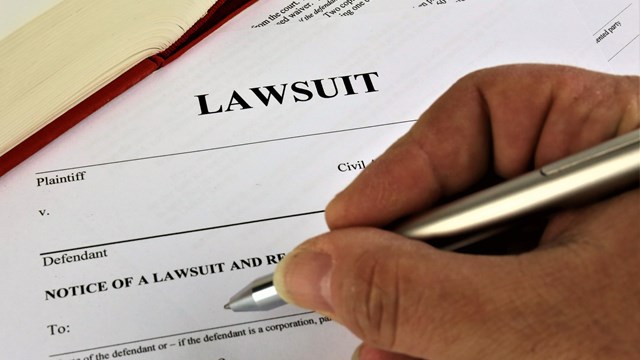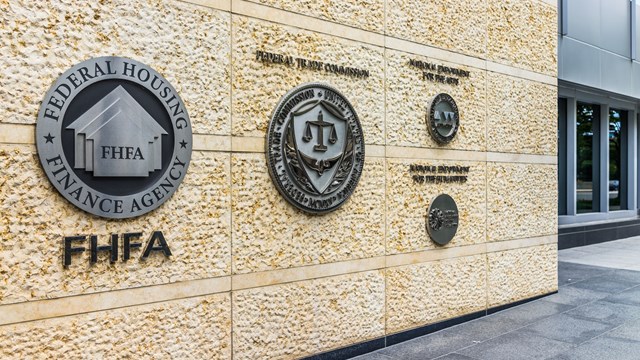“In New Jersey, an individual’s affirmative right to speak freely is protected not only from abridgement by government, but also from unreasonably restrictive and oppressive conduct by private entities in certain situations.” New Jersey Supreme Court
Last month, the New Jersey Supreme Court decided the Mazdabrook Commons Homeowners’ Ass’n v. Khan case. The Mazdabrook decision finds unconstitutional any restriction that prohibits a resident from posting a political sign in his own window. While the holding may seem simple to some, the significance is great. If the Twin Rivers court of 2007 merely warned communities to respect Constitutional rights in communities, with Mazdabrook, we leave no room for doubt about priorities. Not only will the court balance Constitutional rights with private property concerns, but we now know that the court will go further. The court will diminish the interest in private property when juxtaposed with preserving a fundamental Constitutional right. Mazdabrook foremost recognizes that membership in a common interest community does not extinguish Constitutional rights of citizenship—rights to free speech and press and assembly—which are afforded to all American citizens, irrespective of where we call home.
Mazdabrook also acknowledges that the individual homeowner has free speech rights in her own home. To date, we have frequently subordinated these rights in one’s home to the benefit of the collective membership.
Finally, the Mazdabrook case will no longer tolerate business as usual in associations. Covenants that unreasonably restrict speech may be declared unenforceable as a matter of public policy. So, while the Mazdabrook court simply held that a policy banning all political signs from one’s own window is unconstitutional, the decision actually says a whole lot more.
The Mazdabrook Decision
The facts are these: The Mazdabrook Commons is a common interest community located in Parsippany-Troy Hills, New Jersey. Mazdabrook is managed by an association, which is governed by an elected Board of Trustees (“Board”) and according to a Declaration of Covenants and Restrictions, Bylaws and Rules and Regulations (“Governing Documents”). The declaration specifically prohibits signage “in or on any building, the common facilities or any part thereof without prior written consent of the board.” The association rules also reiterate the ban of signs. Traditionally, the board has authorized homeowners to display a “for sale” sign and only in one window. The board has no other criteria that permits the display of signs.
In 2003, Mr. Wasim Khan purchased a home in Mazdabrook. In 2005, he ran for the Parsippany Township Council. To support his candidacy, he posted two signs—one inside his front door and the other inside his front window. The board cited the violation and ordered the removal of the signs. Mr. Khan complied. In 2008, Khan and the association were involved in an unrelated dispute. By way of counterclaim, Mr. Khan complained that the earlier forced removal of his signs violated his free speech rights under the Federal and State Constitutions.
The trial court found that the ban on signs did not violate Khan’s free speech rights. A divided Appellate court reversed the trial court decision, the majority holding that the sign prohibition was unconstitutional. The Supreme Court upheld the Appellate decision finding that, when balanced, Khan’s important fundamental right to free speech to post signs on his own property outweighed the minimal interference to Mazdabrook’s private property interest to prohibit such signs. The restriction on signs violates the speech clause of the New Jersey State Constitution.
Analyzing Free Speech Rights on Private Property
New Jersey has a long line of Supreme Court cases analyzing the right to free speech on private property. The seminal State v. Schmid case of 1980 held that a non-student’s constitutional right was violated when he was prohibited from distributing political materials on the campus of Princeton University, a private university. In that case, Princeton University had a policy for outsiders to be invited to speak by members of the Princeton community and offered no kind of guiding policy for a non-student expression on the campus.
The Schmid case outlined a three-part test for analysis of free speech rights on private property that is applied to all New Jersey cases involving tension between free speech rights and private property interests. Under the test, courts are obligated to consider 1) the nature, purposes and primary use of the private property, 2) the extent and nature of the public’s invitation to use that property, and 3) the purpose of the expressional activity undertaken on the property in relation to both the private and public use of the property.
In 2007, the court for Committee for a Better Twin Rivers v. Twin Rivers Homeowners’ Ass’n, also addressed signs. In that case, plaintiffs similarly complained that the community’s sign policy restricted free speech because it limited signs to one per window and one per lawn. The difference there is that the association did not altogether prohibit signage or attempt to oppress free speech. In Twin Rivers, the court found that the “time, place and manner” sign restrictions struck the right balance by protecting the association’s property interests while allowing residents a means of expression through signage.
Much like in Twin Rivers, the Mazdabrook case easily resolved the first two prongs of the Schmid test in favor of the association by finding that the nature, purpose and use of the property are decidedly private, and the public is not invited to access the property. However, the difference in Mazdabrook is that the court was forced to evaluate the restrictions from a dual perspective---that of the association as well as from the perspective of an actual homeowner with fundamental rights to express himself on his own property within the association. The effect of this is to place more weight on the final Schmid prong, which inquires as to the purpose of the expressional activity in relation to both uses—private and public.
In the end, the court balances whether the expressional rights prevail over the potentially diminished private property right. Posting of political signs in a private unit has a minimal interference on the association’s interest in preserving aesthetics when compared to the importance of Khan’s right to exercise his free speech rights from his own home. The court emphasized that speech relating to one’s own candidacy for office is particularly important and core to our democratic values. The court further commented that signage is a “venerable, unique and important means of communication” that is “inexpensive and convenient, connecting the message directly to the speaker.” Accordingly, based on this analysis, the court found the association’s sign restriction unconstitutional.
The Meaning of Mazdabrook
So what does Mazdabrook mean to us practically? The easy answer is that when a resident in an association posts signs in their own window to endorse their own candidacy, the board cannot demand removal of the signs. If a resident posts signs in his or her unit to endorse other candidates, the board should not seek to remove those signs either. Finally, associations will need to devise objective and fair policies that regulate size, duration and placement—also known as “time, place and manner” restrictions----of signage before restricting an owner’s free speech.
But questions still remain. Has the Supreme Court of New Jersey merely protected a resident’s right to post signs limited to endorsing his or her own political candidacy, any person’s political candidacy or does the result protect any political speech as displayed on signage in one’s own window?
Political speech is not limited to Republicans or Democrats campaigning for office. New Jersey’s Constitution guarantees individuals the right to “freely speak, write and publish sentiments on all subjects…” Arguably, Mr. Khan made this easy for our court. It is hard to imagine the court upholding an absolute ban on Mr. Khan’s display of a sign or two within his own unit to quietly campaign for his own upcoming election. Who would not find such a ban repugnant to core American values? The trickier questions is how will our court handle this question when the speech is undesirable or becoming a little too noisy on the private property?
Speech is divided into essentially two kinds: commercial and political speech. Commercial speech covers for sale signs and business ads. Political speech is, well, everything else with a few exceptions. If I wish to post signs in my door or window stating the obvious, the crazy, the obnoxious, the tactless…who is to judge the content of my political speech? Not the governing board of the association, according to the courts of New Jersey.
That is not to say that all speech is protected. The United States Supreme Court has made it clear that certain defamatory speech and speech intended to “incite imminent lawless action” will not be protected. Obscenity (described as appealing to the prurient interest and “hard core”) will have no defender in the court either. But your everyday profanity may very well slip in as protected speech, particularly if artfully communicated. Any signs revealing motivation to overthrow the U.S. government (seditious speech) can be removed without apology. However, note carefully: Speech to overthrow the community governing board has not yet been deemed important enough for consideration by our Highest Court, so it is likely Constitutional. Because time, place and manner restrictions are content neutral, it would seem that most owners may freely express themselves by posting signs in unit windows.
Even with the most conservative interpretation of the latest case, there are still some issues: New Jersey has a lot of elections. There are general elections for president, governors and senators every four years. Assembly representatives are elected every two years. In each year of a gubernatorial election, the entire Assembly and entire Senate are up for election. Federal level senators serve six-year terms, but they are elected in even years while state legislative elections are in odd years. Then there are municipal elections and school elections, among others, which are held at various months in the year. That’s a lot of signs for a community that has worked so diligently to make sure that the siding and landscaping scheme are aesthetically pleasing. Does our interest in protecting one’s free speech by way of signage become a little less palatable when all 300 neighbors in the community get to speak too?
Finally, the Mazdabrook decision found that Khan did not waive his constitutional right to free speech when the association’s governance prior to making Mazdabrook his home. The court found that waivers of one’s Constitutional rights must be knowing, intelligent and voluntary. Rules in documents that subject a homeowner to seek permission prior to posting sign without clear standards of how this would be governed cannot, according to the Supreme Court, be a legitimate waiver of a constitutional right. Further, covenants that unreasonably restrict speech may be declared as void against public policy and unenforceable.
The Conclusion
In New Jersey, the State Constitution provides that “an individual’s right to speak freely is protected not only from abridgement by government, but also from unreasonably restrictive and oppressive conduct by private entities.” This cloak of protection of fundamental speech rights, even within the ambit of a private entity makes New Jersey’s State Constitution one of the most protective of First Amendment rights in the nation. The Mazdabrook decision is only the latest of several cases this decade to advance New Jersey to the fore nationally for applying the State Constitution to privately owned community associations. And Mazdabrook is unlikely the final word. Even among us hard-liners in favor of preserving private property rights, it’s hard not to smile at the good in this decision.
Jennifer A. Loheac is a partner with the law firm of Becker & Poliakoff in Morristown, New Jersey.







Leave a Comment